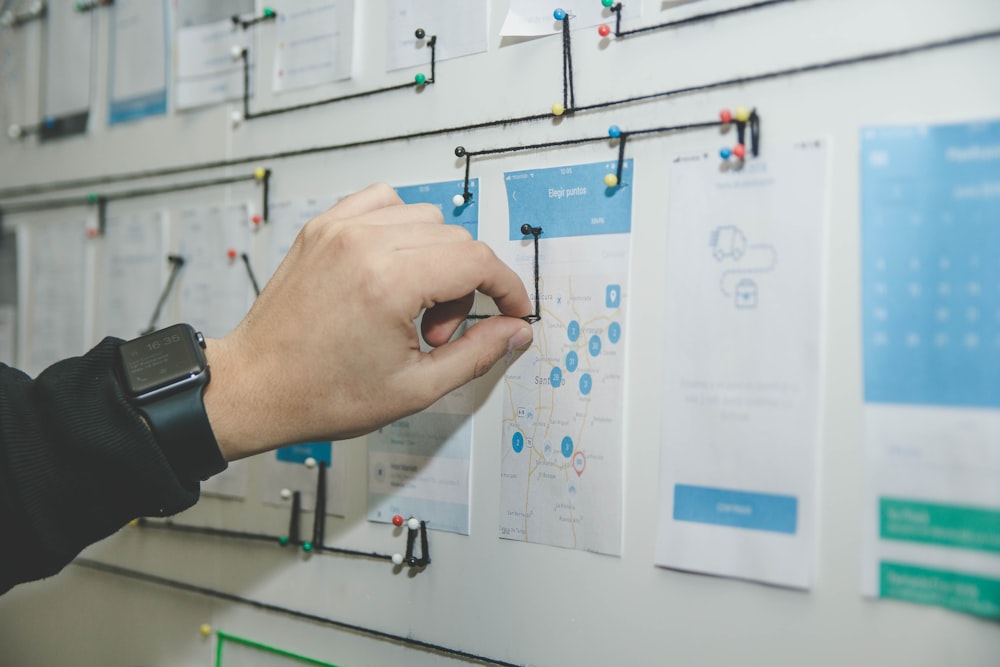In an era where technology reigns supreme, healthcare has seen a significant transformation. Mobile apps have emerged as a powerful tool, revolutionizing patient care, streamlining operations, and enhancing overall healthcare experiences. This guide will delve into the world of healthcare mobile app development companies, providing you with insights into the top players in the industry and key factors to consider when choosing a partner for your healthcare app development project.
The Rising Demand for Healthcare Apps
In recent years, the healthcare sector has witnessed a significant transformation, predominantly driven by the advent and rising popularity of mobile healthcare applications. This shift towards digital healthcare solutions is reshaping the landscape of medical care, making it more accessible and personalized than ever before. The burgeoning demand for healthcare apps is a reflection of several societal, technological, and healthcare-specific trends converging to create a fertile environment for digital health solutions.
Technological Advancements and Smartphone Penetration
One of the primary drivers behind this surge is the widespread adoption of smartphones globally. As these devices become more affordable and accessible, a larger segment of the population can now access healthcare services with just a few taps on their screens. This increased smartphone penetration has paved the way for healthcare apps to reach a broader audience, offering solutions ranging from appointment scheduling to chronic condition management.
Shift Towards Preventative Healthcare
Additionally, there is a noticeable shift in consumer behavior towards health consciousness and preventative healthcare. Individuals are increasingly proactive about their health, seeking tools and resources to monitor and improve their well-being. This heightened awareness has fueled the demand for mobile health apps that provide features such as fitness tracking, nutritional information, and symptom checkers.
The Impact of the COVID-19 Pandemic
The COVID-19 pandemic has further accelerated the need for remote healthcare solutions. Social distancing measures and the risk of virus transmission have made telemedicine apps indispensable for providing uninterrupted medical care. These applications have become crucial for conducting virtual consultations, managing prescriptions, and offering mental health support, illustrating the critical role of digital solutions in times of healthcare crises.
Market Growth and Future Projections
Reflecting these dynamics, market analyses provide a bullish outlook on the healthcare app industry. Predictions indicate that the global healthcare app market could reach a staggering $227.39 billion by 2025, growing at a Compound Annual Growth Rate (CAGR) of 44.2% from 2018 to 2025. This exponential growth is not only a testament to the current demand but also an indication of the potential and scalability of healthcare applications in the coming years.
In conclusion, the convergence of technological advancements, evolving consumer preferences, and the global health landscape’s changing needs has created a robust demand for healthcare mobile applications. This demand is expected to continue growing, driven by the ongoing digitalization of healthcare and the universal push towards more accessible, efficient, and personalized medical care. For mobile app development companies, this represents a significant opportunity to innovate and contribute to the evolving field of digital health. As we look to the future, it is clear that healthcare apps will play an increasingly vital role in shaping the delivery and experience of healthcare services worldwide.
Decoding Healthcare Apps
In the vast and evolving landscape of digital health, healthcare applications represent a significant leap forward in how we approach health and wellness. Broadly categorized into fitness and medical apps, these tools are reshaping the paradigms of health management and medical care.
Fitness Apps: Paving the Way to Wellness
Fitness apps are designed to motivate, guide, and track users’ physical activities and well-being. They cater to a wide array of fitness goals, from weight loss and muscle building to improving flexibility and endurance. These applications often feature workout guides, nutritional plans, and progress trackers to help users achieve their fitness objectives. They leverage the power of technology to make fitness more accessible and personalized, allowing individuals to tailor their fitness journeys to their specific needs and preferences.
The appeal of fitness apps lies in their convenience and customization. Users can select workouts, set goals, and monitor their progress in real time, all from their mobile devices. This ease of use has made fitness apps a popular choice for those looking to incorporate exercise into their busy lifestyles. Additionally, the social features of many fitness apps, such as sharing achievements and competing with friends, add a layer of motivation and community support that was previously harder to achieve.
Medical Apps: Revolutionizing Patient Care
On the other hand, medical apps serve a more clinical purpose. They are integral to modern healthcare regimens, offering functionalities such as health tracking, medication reminders, and communication channels between patients and healthcare providers. These applications can monitor vital signs, manage chronic conditions, and store personal health records, making them invaluable tools for both patients and medical professionals.
One of the most transformative aspects of medical apps is their ability to facilitate telemedicine. Virtual health visits, once a novelty, have become a necessity in the wake of global health challenges like the COVID-19 pandemic. Through these platforms, patients can consult with healthcare providers from the comfort of their homes, reducing the need for physical visits and thereby minimizing the risk of infectious exposures.
The Synergy of Fitness and Medical Apps
While fitness and medical apps serve distinct purposes, their overarching goal is the same: to enhance the user’s health and quality of life. The integration of these apps into daily routines has led to a more holistic approach to health, where physical fitness and medical care converge seamlessly. This synergy not only empowers individuals to take charge of their own health but also provides healthcare professionals with more comprehensive data to inform treatment and advice.
In conclusion, the distinction between fitness and medical apps underscores the diverse needs they meet in the quest for improved health and well-being. As technology continues to advance, the potential for these apps to innovate and transform the healthcare landscape is immense. By decoding the types and functions of healthcare apps, users and developers alike can better navigate this dynamic field, leading to more effective and personalized health solutions.
Top 10 Healthcare Mobile App Development Companies
Here, we present a curated list of the top 10 healthcare mobile app development companies, each renowned for its ability to deliver innovative, secure, and effective healthcare app solutions:
- QSS Technosoft: Recognized as a global leader in healthcare app development, QSS Technosoft specializes in creating solutions that enhance patient engagement, telemedicine, and healthcare management systems. The company also offers DICOM & PACS solutions for healthcare facilities around the USA.
- Cerner Corporation: Cerner Corporation provides a broad spectrum of healthcare IT solutions, including digital transformation, analytics, and patient experience enhancement.
- Athena Health: Athena Health is popular for its cloud-based services that streamline healthcare operations. Their healthcare IT solutions include practice management, medical billing, and electronic health records.
- Capgemini: Capgemini offers end-to-end healthcare IT solutions, including digital transformation, analytics, and patient experience enhancement.
- ZCO Corporation: ZCO Corporation excels in developing custom healthcare apps tailored to meet the diverse needs of the healthcare industry.
- Trango Tech: Trango Tech specializes in crafting cutting-edge healthcare IT solutions, including patient engagement apps, remote monitoring tools, and healthcare analytics platforms.
- Global Logic: Global Logic leverages its technological prowess to develop innovative healthcare applications, spanning telemedicine, health monitoring, and data analytics.
- TopTal: TopTal is renowned for connecting businesses with top-tier freelancers, including healthcare app developers.
- Synoptek: Synoptek specializes in providing end-to-end healthcare IT solutions, including electronic health records (EHR) systems, practice management tools, and data security solutions.
- Arkenea Inc.: Arkenea Inc. excels in crafting custom healthcare applications, ranging from patient-centric apps to solutions for healthcare providers and payers.
Key Considerations for Choosing a Healthcare App Development Company
When choosing a healthcare mobile app development company, several factors should be taken into consideration:
- Industry Experience: Companies with a proven track record in healthcare app development often have a deep understanding of healthcare workflows, compliance requirements, and industry-specific challenges.
- Compliance and Security: Reputable companies adhere to healthcare regulations such as the Health Insurance Portability and Accountability Act (HIPAA) to ensure the security and privacy of patient data.
- Client Feedback: Client testimonials and case studies provide insights into a company’s reliability, communication, problem-solving capabilities, and overall client satisfaction.
- Innovation and Technological Expertise: Companies that embrace innovation and stay updated on the latest technologies can create cutting-edge solutions.
- Scalability and Flexibility: Companies that design scalable solutions that adapt to the evolving needs of your healthcare organization are a good choice.
- Interoperability: Seamless integration with electronic health records (EHRs), health information exchanges (HIEs), and other healthcare IT infrastructure is crucial.
- User-Centered Design: Prioritize a user-centered design approach. Intuitive interfaces and user-friendly experiences enhance adoption rates among healthcare professionals and improve patient engagement.
- Post-Launch Support and Maintenance: Choose a company that offers post-launch support and maintenance services.
- Transparent Communication: Choose a company that values transparent communication.
- Cost Transparency: Ensure clear and transparent pricing structures.
The Cost of Hiring a Healthcare Mobile App Development Company
When venturing into the creation of a healthcare mobile app, one of the primary considerations is the financial investment required. The cost associated with hiring a healthcare mobile app development company can significantly vary, influenced by several key factors such as project complexity, desired features, and the geographical location of the development team.
Factors Influencing Development Costs
The complexity of the app plays a crucial role in determining the cost. A basic app with standard features like appointment scheduling or medication reminders may be on the lower end of the cost spectrum. In contrast, an app requiring advanced functionalities, such as real-time health monitoring, integration with medical devices, or AI-based diagnostics, will necessitate a higher investment due to the increased complexity and technical expertise required.
Furthermore, the features you choose to include in your healthcare app directly impact the development cost. Essential features like user registration, data encryption, and basic health tracking are typically less costly to implement. However, adding sophisticated features such as telemedicine services, personalized health recommendations, or blockchain-based security can significantly increase the price.
Understanding Hourly Rates and Total Costs
The hourly rates charged by healthcare mobile app development companies also vary widely. In general, rates can range from $80 to $150 per hour, depending on the company’s location, reputation, and level of expertise. However, there are more affordable options available. For instance, companies like QSS Technosoft offer competitive rates starting at $25 per hour, providing a more cost-effective solution without compromising on skillset or technological proficiency.
Choosing the Right Development Partner
Selecting the right development company is crucial. While cost is an important factor, it should not be the sole criterion for your decision. Consider the company’s experience in healthcare app development, their portfolio of similar projects, and their understanding of healthcare regulations and compliance issues, such as HIPAA in the United States.
Budgeting for Your Project
It’s essential to approach the project with a clear budget in mind. Consider all potential costs, including initial development, testing, deployment, and ongoing maintenance. Remember, investing in a high-quality app can lead to better user engagement, compliance, and ultimately, a higher return on investment.
In conclusion, while the cost of hiring a healthcare mobile app development company can vary widely, careful planning and selection can lead to a successful project that meets your budgetary constraints and business objectives. It’s about finding the right balance between cost, quality, and functionality to create an app that effectively serves the needs of healthcare providers and patients alike.
Conclusion
In the rapidly evolving landscape of digital healthcare, the decision to select the right healthcare mobile app development company cannot be overstated. The journey towards creating an impactful and user-friendly healthcare app is intricate, requiring not only technical expertise but also a deep understanding of the healthcare industry’s regulations, challenges, and patient needs.
The top 10 healthcare mobile app development companies we have outlined demonstrate exceptional skills in innovation, commitment to client satisfaction, and a profound understanding of the healthcare domain. Their dedication to excellence ensures that they are capable of transforming your digital health ideas into functional, secure, and compliant mobile applications.
For those considering embarking on a digital health project, direct engagement with these companies can provide a clearer insight into their service offerings and help you understand their pricing structures. This direct interaction is crucial for establishing a relationship based on transparency, trust, and mutual understanding.
In an industry as complex and regulated as healthcare, the right partnership can significantly dictate the success of your digital health initiatives. Partnering with a company that not only possesses the necessary technical skills but also understands the nuanced needs of healthcare providers and patients can lead to the development of an app that is not only technically proficient but also highly user-centric and compliant with healthcare standards.
Ultimately, the goal is to create digital solutions that improve patient outcomes, streamline healthcare processes, and enhance the accessibility of healthcare services. By choosing a partner that aligns with these objectives, you can ensure that your healthcare mobile app not only meets but exceeds the expectations of users, setting a new standard in digital healthcare solutions.
FAQ: Healthcare Mobile Apps and General Mobile App Development
How much does it cost to develop a healthcare mobile app?
The cost of developing a healthcare mobile app can vary widely depending on features, complexity, and platform. Basic apps might cost between $20,000 to $50,000, while more complex applications can exceed $100,000 or more. Factors affecting cost include app design, security measures, data integration, and whether the app requires compliance with regulations like HIPAA.
How to build a healthcare app?
To build a healthcare app, follow these steps:
- Define your target users and their needs.
- Ensure compliance with healthcare regulations (e.g., HIPAA in the U.S.).
- Decide on the key features (e.g., appointment scheduling, telemedicine, patient records).
- Choose a reliable development team.
- Design a user-friendly interface.
- Develop and test the app thoroughly.
- Launch the app and gather user feedback for improvements.
What are mobile apps used for in healthcare?
Mobile apps in healthcare are used for various purposes, including:
- Telemedicine consultations.
- Appointment scheduling and reminders.
- Medication tracking and reminders.
- Accessing patient records and test results.
- Monitoring health indicators (e.g., heart rate, blood sugar).
- Providing health-related information and tips.
Who is the most successful mobile app development company today?
Success can be measured in various ways, such as revenue, user satisfaction, or innovation. Companies like Appster, Fueled, and Savvy Apps are often cited among the top mobile app development companies, known for their quality and successful projects across different sectors, including healthcare.
Which is No 1 app in the world?
The “No. 1 app in the world” can vary based on different metrics: downloads, revenue, user engagement, etc. As of the last available data, apps like TikTok, WhatsApp, and Facebook often rank at the top in terms of global downloads and user engagement.
How profitable is mobile app development?
The profitability of mobile app development can vary greatly. Some apps make millions in revenue, while others struggle to break even. Profitability depends on factors like the app’s market demand, monetization strategy, and user base. Successful apps can generate revenue through in-app purchases, subscriptions, ads, and more.
How much money does an app with 100k downloads make?
Earnings from an app with 100k downloads vary based on the app’s monetization strategy. For example, if an app makes money through ads, it could earn anywhere from $100 to $10,000 depending on the ad rates and user engagement. In-app purchases and subscriptions can lead to higher revenues if a significant percentage of users spend money.
How much does an app with 100 million downloads make?
An app with 100 million downloads has the potential to generate significant revenue, but the exact amount depends on factors like the app’s monetization methods, user activity, and market. It could range from hundreds of thousands to millions of dollars. For instance, high-grossing apps with this many downloads can make millions from advertising, in-app purchases, and subscriptions.
Is the mobile app industry saturated?
While the mobile app market is highly competitive with millions of apps available, it is not entirely saturated. There remains significant potential for innovation and niche markets. Success in the mobile app industry requires understanding user needs, delivering unique value, and continuously improving based on feedback.
Featured Image Credit: Photo by National Cancer Institute; Unsplash – Thank you!
















